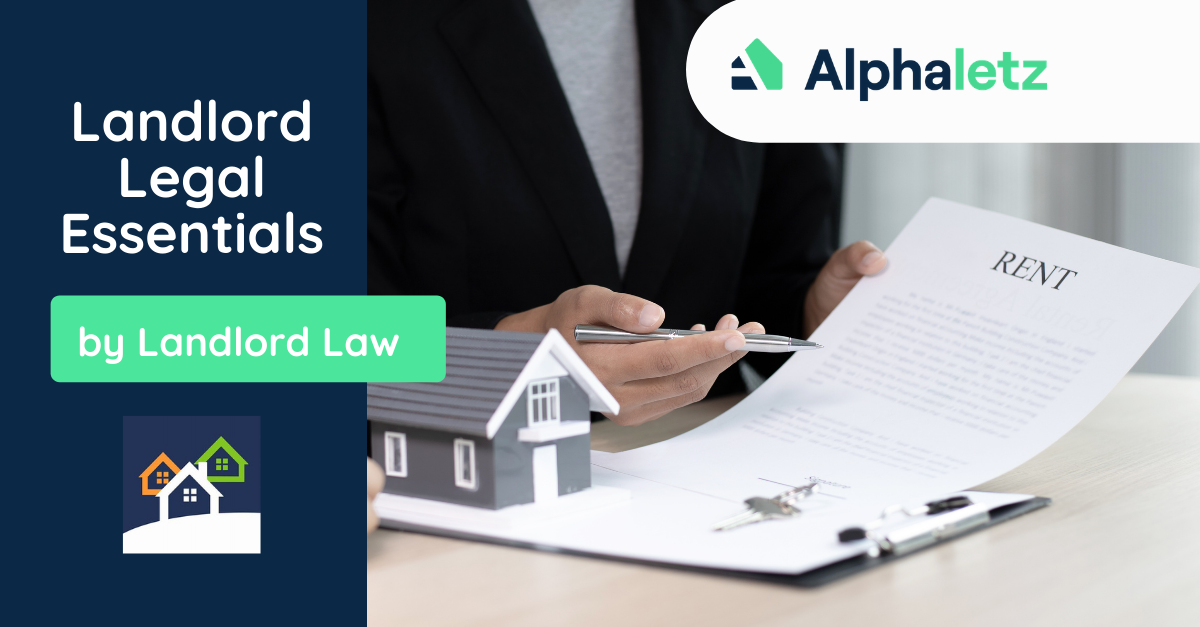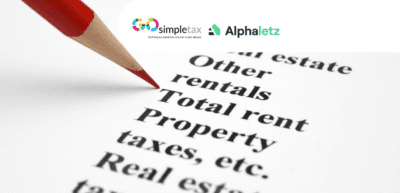03. Choosing your tenants

Alphaletz and Landlord Law are delighted to bring you Landlord Legal Essentials. Tessa Shepperson, solicitor and owner of the landlord information service, Landlord Law, gives advice to landlords in this six-part series of articles. This third blog addresses how to choose your tenants.
Tessa Shepperson, solicitor and owner of the landlord information service, Landlord Law, gives advice to landlords in this six-part series of articles.
Most experienced landlords will probably agree that that single most important thing when renting property is to choose good tenants.
Bad tenants will have no respect for you or your property. They will not abide by the terms of your tenancy agreement (unless it suits them), they will trash your property and they will run up big arrears knowing that it will take you many months to evict them.
Good tenants on the other hand will take care to pay their rent regularly, will keep your property spotless and be willing to work with you if problems arise, in a reasonable way.
You also need to remember that there are many crooks and criminals out there. These could:
- Turn your property into a cannabis farm
- Use it for running other criminal activities such as criminal cold calling or people trafficking
- Seek to transfer title to themselves and then borrow money on its security
So you need to be on the watch for these people. This means checking all applicants carefully and NOT taking the first person who applies.
Here is a rundown of the main things you need to do:
Get information from your tenants
Most landlords and agents have a form for you to complete which will include things like
- The tenants’ names and the names of any other people who will be living at the property
- Personal information such as name, date of birth, current and previous addresses, ID information (such as their National Insurance, driving license and passport numbers), and employment details
- Things that will affect their use of the property such as whether they are a smoker, keep a pet or own a car.
- Their bank account details
- You should ask for the name and address of their next of kin, and also
- Whether they have any criminal convictions.
The last item will probably raise a few eyebrows but in almost all cases it is something your insurers will require you to ask – so you can calm prospective tenants down by telling them this!
Your tenant’s information form will be an important part of your tenant selection process and you need to make it as complete as possible. You will probably start out by using someone else’s template, but it is best to adapt it as you go on, so it asks questions about issues you have had in the past.
Generally, you need to bear in mind the main functions of this form which are that:
- It will give information about the tenant to enable you to carry out credit checks
- It will allow you to prove that a tenant has lied to you if they fail the credit check – allowing you to retain the holding deposit (if you have taken one)
- It will contain the information needed to draft the tenancy agreement
- It will contain information you need for the tenancy deposit prescribed information form (if you take a deposit)
- It will serve as the tenant’s authority to keep records on him/her under the Data Protection legislation (but more on this later)
- It will provide information you can use later on to trace a defaulting tenant and enforce any money judgment you may obtain
- If you word it correctly it can also serve as a ‘statement of truth’ from the tenant should you wish to use it in court proceedings
You should also adapt your form so the questions will reflect the questions asked by your referencing company. See this video for more information.
Note that we have a template tenant information form on Landlord Law for our members to use.
ID, documents, and bank statements
You will need to check your tenants ID anyway as part of your ‘right to rent’ checking (which needs to be done for ALL occupiers of the property, not just the tenants), but you will want to be sure of their identity for your own purposes.
It is also a good idea to ask for three months bank statements so you can see if they are able to afford to pay your rent.
Many applicants will object to this, and some may tell you that it is ‘against data protection law’. It isn’t – although once you have the statements you will be bound by the data protection regulations and will be expected to keep the bank statements safe and destroy them when no longer needed.
While we are discussing documents, note that you will also need to get your tenants to sign a letter of authority for you to send to your credit reference company and any people giving references.
Carrying out checks
Although you have had information from your tenant it is best not to trust it until it has been independently verified. So,
- Check out their employer on the internet and make sure any telephone number provided really is the number of the employer (and not the number of the applicant’s friend).
- Take a look at the employer’s website and see if any referees named are shown there
- Any limited companies can be checked via Companies House.
- You can put telephone numbers provided into Google and see what comes up
There are so many fraudsters and criminals now targeting landlords and tenants that you cannot afford to trust anyone.
If there are ANY discrepancies in the information provided to you – follow it up.
You should also check out applicants on social media – which is also not against ‘data protection’ so long as you are not hacking into protected areas. So, look them up on:
- Twitter, etc
And see what you find. Make sure though that any entries relate to your applicant. For example, the John Smith you find on Facebook who has two Alsatian dogs may not be the John Smith who has applied to you for a tenancy and who says he has no pets.
Take references
This is something often skipped by landlords, but it is worth doing. For example:
- A bank reference will at least confirm that the applicant has a bank account where he says he has
- An employer’s reference will confirm that they have a job and the salary they receive (important as this will be paying your rent!)
- A landlord’s reference may give you useful information but remember that if the landlord is anxious to get rid of them, they may be economical with the truth. A phone call here may be helpful as you can tell a lot from people’s tone of voice and what they don’t say. Or try to speak to previous landlords too.
- A personal reference will be helpful if you trust the referee to be truthful and impartial.
Remember that you will need to include a letter of authority signed by your applicant when writing to referees.
Apply for a credit check
This is the only thing that will actually cost you money, but it is well worth doing. And well worth paying that bit extra for a decent report. If your tenant is being followed around by a trail of CCJs – you need to know about this!
However, don’t rely on the credit check report alone. Do your own checks too. This case shows what can happen if you don’t do this.
In view of the increasing sophistication of criminals, who may present you with fraudulent bank statements and ID documents which can be very convincing, it may also be worth getting a proper ID check done with a company that specialises in this work.
Remember that once tenants are in it can take up to a year or more to evict them, so it pays to be very careful.
Consider having a meeting
In these COVID affected days we are doing more and more online. However, it is a good idea, particularly if you are unsure about a prospective tenant, to actually meet them face to face.
If you do this, you need to have a checklist of questions to ask them – make sure you note down all the answers! (We have a checklist for this for my Landlord Law members).
If you have a ‘feeling’ about an applicant who seems all right but who worries you, some landlords swear by visiting the tenants at the current accommodation. Which will give you an idea of how they will treat your property!
Things to consider
Every tenant is different and has different needs and requirements. Here are some additional things you will need to consider:
- Will you be asking for a guarantor? (this is almost universal for student lets)
- Do they have a vehicle and if so, is there adequate parking at the property for it?
- Will they want to keep a pet?
- Will they be wanting to run a ‘home business’ at the property?
- Will you be taking a deposit and if so, will you insist on a ‘traditional’ deposit or offer them the option of an alternative scheme?
Things to watch out for
As I said above, the criminals are always there, and you need to be on the watch for scams and danger signals. Here are some things to look out for:
- Applicants offering to pay cash for the whole term up front – this sounds good but is a classic sign of criminals who will be looking to use your property for a cannabis farm
- Likewise, tenants who seem to want you to stay away and not carry out any inspection visits
- Applicants who ask to borrow the keys – NEVER allow this as they can get them copied and then use them in scams
- Applicants who put you under pressure to pay out against cheques which have not yet cleared
Hopefully this article will help you sort the good applicants from the bad and find a good tenant for your property.
You can keep track of your tenant communications and agreements within your Alphaletz account. By linking notes and records against a property, you will have a full history at your fingertips.
And finally
That’s all for this article. In my next article, we will be giving a run down of the things you need to do when setting up a new tenancy.
In the meantime, if you need further information, please visit my website Landlord Law at www.landlordlaw.co.uk.
Tessa Shepperson


